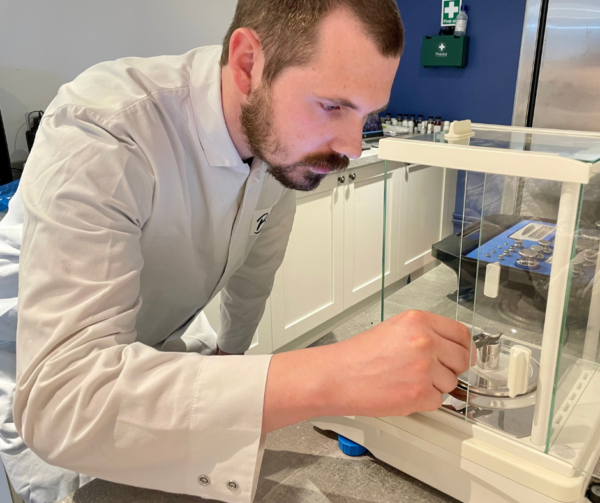A Comprehensive Guide to Weighing Equipment Validation in GxP Laboratories
In GxP laboratories, precision is paramount. The accuracy of measurements is crucial for ensuring the quality and safety of products in industries such as pharmaceuticals, healthcare, and food. Weighing equipment plays a critical role in these measurements, and its validation is essential to maintain data integrity and meet regulatory standards.
Understanding GxP Compliance
GxP stands for Good Practice, a set of quality and compliance regulations that govern various industries. These regulations ensure the reliability and consistency of data generated in laboratories. In the UK, relevant GxP regulations include:
- Good Manufacturing Practice (GMP) for pharmaceuticals
- Good Laboratory Practice (GLP) for non-clinical research
- Good Distribution Practice (GDP) for wholesale distribution of medicinal products
GxP-compliant laboratory weighing involves validating the weighing equipment to demonstrate that it consistently meets the required accuracy and performance standards.
Weighing Equipment Validation Processes
The validation process for weighing equipment typically involves three stages:
1. Installation Qualification (IQ)
The IQ verifies that the weighing equipment is correctly installed and meets the manufacturer’s specifications. It includes checking electrical connections, environmental conditions, and any specific requirements outlined by the equipment supplier.
2. Operational Qualification (OQ)
The OQ focuses on confirming that the weighing equipment operates within defined parameters. It involves testing the functionality of the equipment under various conditions to ensure consistent and accurate performance. OQ also includes assessing the equipment’s response to potential deviations, such as power failures or environmental changes.

3. Performance Qualification (PQ)
The PQ aims to demonstrate that the weighing equipment consistently performs accurately in its intended environment. It involves testing the equipment with calibrated weights across its entire operating range, assessing repeatability, linearity, and sensitivity.
Documentation Requirements
To achieve GxP compliance, meticulous documentation is essential. Key documentation includes:
- User Requirement Specification (URS): This document outlines the requirements and expectations for the weighing equipment, serving as a foundation for the validation process.
- Validation Plan: A comprehensive plan detailing the approach, scope, and schedule for the validation process.
- Traceability Matrix: This document correlates individual test cases with the corresponding requirements outlined in the URS.
- Standard Operating Procedures (SOPs): Detailed procedures for the installation, operation, and maintenance of the weighing equipment.
GxP Regulatory Bodies and Third-Party Validation Services
In the UK, the Medicines and Healthcare Products Regulatory Agency (MHRA) is responsible for ensuring compliance with GMP regulations for pharmaceuticals. The UK Health Security Agency (UKHSA) oversees GLP regulations for non-clinical research.
Third-party validation services can provide expertise and guidance in validating weighing equipment and ensuring compliance with GxP regulations. These services can be particularly beneficial for laboratories with limited in-house validation resources or expertise.
Maintenance and Calibration of Weighing Equipment
Maintaining the accuracy of weighing equipment requires regular calibration and maintenance. Calibration involves comparing the equipment’s readings against calibrated weights and adjusting it if necessary. Maintenance involves cleaning the equipment, checking for any damage, and replacing worn-out parts.
Conclusion
Weighing equipment validation is a critical aspect of GxP laboratories, ensuring the reliability and accuracy of data generated in these highly regulated environments. By following meticulous processes, maintaining comprehensive documentation, and adhering to GxP regulations, laboratories can uphold quality standards and demonstrate a commitment to precision in their operations.
Micro Weighing Solutions (MWS Ltd) is a trusted partner for GxP laboratory weighing, providing expert guidance, high-quality weighing equipment, and tailored solutions to meet your specific GxP compliance needs. Contact us today for assistance with your weighing equipment validation and maintenance requirements.




















